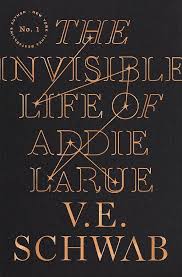Chapter IV
byChapter IV takes place in Villon-sur-Sarthe during the fall of 1703, where the community’s life revolves around the local Catholic church, a bastion of faith that both unites and defines the villagers. At twelve years old, Adeline feels disconnected from the fervent religious practices of her parents, viewing her prayers as part of a monotonous routine rather than a meaningful spiritual act. Her family’s devoutness contrasts sharply with her internal indifference, highlighting her struggle to find significance in religious rituals that feel more like obligations than expressions of genuine belief. However, her worldview begins to shift when she encounters Estele, a mystic who teaches her of forgotten deities, old gods once revered by the people of Villon-sur-Sarthe, that offer a more intimate and natural connection to the world.
Estele’s teachings open a world of spiritual complexity to Adeline, offering a perspective far removed from the distant and formal image of God promoted by her parents. Estele, a deeply rooted figure in the village’s past, sees the new God as removed from the earth and the people, in contrast to the old gods who were more tangible and present in the daily life of the community. This view is not only at odds with Adeline’s family’s beliefs but also with her own growing curiosity about the world beyond the rigid bounds of her village. Adeline’s conflict between the comforting, prescribed faith of her upbringing and the enticing allure of Estele’s ancient wisdom deepens when her father, dismissing Estele as a madwoman, refuses to entertain such notions. At the same time, Adeline’s mother condemns Estele’s practices and opinions, damning them to hell in a fervent display of religious zeal. Yet, despite their harsh reactions, Adeline finds herself fascinated by Estele’s defiant spiritual outlook, which stirs a sense of longing for knowledge and a deeper understanding of her world.
Despite the strict expectations set by her mother, Adeline yearns for something more than the mundane, predictable life in Villon-sur-Sarthe. Unlike her friend Isabelle Therault, who is content with the simple life of a village girl, Adeline craves adventure, exploration, and a broader sense of purpose that extends beyond her village’s narrow borders. This longing is particularly palpable when her father, preparing for a market trip to Le Mans, refuses to take her along—a decision motivated by her mother’s insistence on propriety, further highlighting her exclusion from the wider world. Adeline’s longing for something beyond the confines of her small village becomes undeniable as she realizes the extent to which her curiosity and desire for growth are suppressed by her family’s expectations. Her reflection on this, as well as Estele’s influence, ignites a fire in her to seek out knowledge that challenges her traditional upbringing.
Estele, aware of Adeline’s inner conflict and rebellious spirit, nurtures her curiosity by explaining the nature of the old gods. These gods are not concerned with moral righteousness or prescribed rules, but with presence, respect, and the offering of gifts—a stark contrast to the Christian teachings Adeline’s family holds dear. Estele warns Adeline about the unpredictable nature of these deities, advising caution and restraint in her approach to their power. She explains that the old gods demand more than mere worship; they require genuine respect, and the offerings they receive are to be made with true intent, not out of obligation. This cryptic advice intrigues Adeline, as it suggests a deeper, more personal connection to the divine, one that feels more real and accessible than the cold, distant Christianity she has been taught to follow.
Adeline’s life takes a marked turn when her father returns from Le Mans, bringing gifts that are meant to appease her restless spirit. Instead of appreciating these material gifts, Adeline’s first act is to take one of her most treasured possessions—a pencil—and dedicate it to the river, offering it to the old gods she now seeks to understand. This symbolic act is a powerful defiance against both her mother’s religious expectations and the Christian faith that dominates the village. It marks her first step into a realm of spirituality and sacrifice that will guide her through a journey of self-discovery, one that challenges the deeply ingrained beliefs of her family and her community. Adeline’s offering symbolizes her entry into a world of spiritual exploration, bridging the gap between the devout Christianity of her family and the ancient, primal worship that Estele has introduced her to. It is an act that sets her on a path of personal change, one that promises to reshape her understanding of both herself and the world around her.
This chapter intricately portrays the internal conflict of a young girl caught between the world she knows and the one she longs to explore. Adeline’s encounter with Estele serves as the catalyst for her rebellion against the life that has been chosen for her, providing her with the tools and insight to break free from her constraints. The spiritual lessons she learns not only help her understand her desires but also grant her the courage to embrace the unknown. Through this journey, the chapter highlights themes of self-discovery, rebellion, and the search for meaning beyond the societal boundaries that seek to define her.


